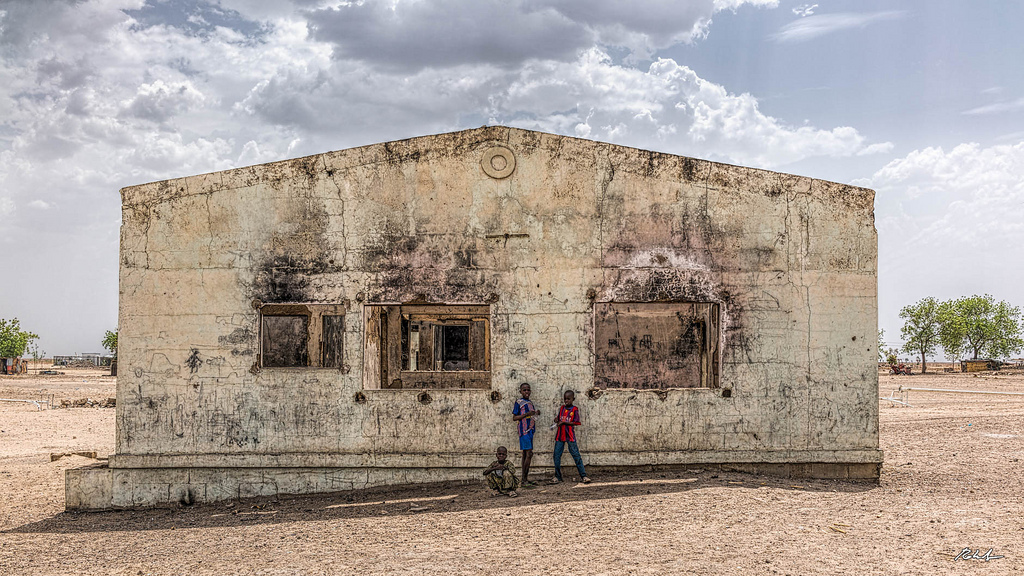“New structure needed for education of girls”
June 12th, 2017 It is disturbingly common to see young girls hawking in the streets in Northern Nigeria, writes Folmi Yohanna, 27, a Correspondent from Kano in Nigeria. who notes that girls from a poor background must be determined, ambitious and hardworking to achieve their educational goals. In recent years the Boko Haram menace has made it even harder for girls in the North Eastern region to get an education.
It is disturbingly common to see young girls hawking in the streets in Northern Nigeria, writes Folmi Yohanna, 27, a Correspondent from Kano in Nigeria. who notes that girls from a poor background must be determined, ambitious and hardworking to achieve their educational goals. In recent years the Boko Haram menace has made it even harder for girls in the North Eastern region to get an education.
A report by Human Rights Watch , “They Set the Classrooms on Fire: Attacks on Education in Northeast Nigeria,” describes Boko Haram’s increasingly brutal assaults on schools, students, and teachers since 2009 in Nigeria’s Borno, Yobe, and Kano states. Attacks to date have destroyed more than 910 schools and forced at least 1,500 more to close, while more than 600 teachers have been killed and 19,000 forced to flee.
The North East and North West regions are the poorest regions in Nigeria, according to a United Nations index, with 46 to 81 per cent of the population living in poverty, compared to less than 20 per cent in the South-West region. The figures are even worst in Zamfara and Yobe States, where more than 90 per cent of the people live in poverty.
Poverty is one reason we often see girls given in marriage at a young age by their parents. It is also the root of truancy at schools and girls dropping out of school to engage in petty trade to supplement family income. However, some girls and their families must be given credit for their effort and determination to see that the girl child is given the best education despite the challenges.
It’s a pity the environment and government attitude towards girls’ education, especially at state-owned schools, often poses a strong challenge to girls’ ambition. To illustrate point, in the Northern region it is common to come across beautifully-built schools. However, the classes are over-populated or you find inadequate teacher numbers. Where there are enough teachers, you find some of them not qualified, and teaching is mostly done in Hausa language.
I have witnessed this myself, and one may wonder how is it possible for these girls to read and write in English when they are being taught in Hausa. What baffles me the most is that the majority of girls attending these schools prefer to discuss marriage than discuss their future ambition or goals. It’s not hyperbole to suggest the difference between out-of-school girls and the ones attending school is just in the nomenclature.
His Highness Muhammadu Sanusi II CON of the Kano Emirate in his speech at the 1st Chibok Girls Annual Lecture, delivered by his daughter Shahida Sanusi, said published research indicates that over 70 per cent of the women in North West are unable to read and write compared to 9.7 per cent in the South East. More than two-thirds of teenaged girls in the North are unable to read a single sentence compared to less than ten per cent in the South. In eight Northern States, over 80 per cent of the women are unable to read and write and only four per cent complete secondary school. Marriage rates for adolescent girls are 78 per cent in the North West, 68 per cent in the North East and 35 per cent in the North Central. I must confess that these statistics are not encouraging at all.
It would be unfair to say all girls in Northern Nigeria government owned schools are nonchalant towards education. Some girls have risen above the challenges, and were fortunate to make it despite the hurdles. Those hurdles in the state-owned schools arose as values and standards seem to have eroded as a result of corruption, nepotism in hiring administration and teachers, and inadequate financial motivation for teachers.
For their counterparts in the federal government-owned schools and private schools, the story is quite different as the standard in those schools is well above average.
It is a clarion call to government at the state level to do more about education than erecting school structures and refurbishing older ones. Matters like the qualification of teachers, the curriculum, the methodology of teaching and the language used by teachers in communication with students should be looked at and addressed. We have a problem; an existential crisis. Stakeholders must come together to put an end to this.
photo credit: robysaltori Schoolboys via photopin (license)
…………………………………………………………………………………………………………………
About me: I am legal practitioner practicing in Nigeria. I would love to be at the top of my career and hopefully, publish books. Also, be an agent of positive change in Nigeria and the world.
I love reading, practicing my profession, doing voluntary humanitarian activities, watching and playing of football and I love playing video games.
…………………………………………………………………………………………………………………
Opinions expressed in this article are those of the author and do not necessarily represent the views of the Commonwealth Youth Programme. Articles are published in a spirit of dialogue, respect and understanding. If you disagree, why not submit a response?
To learn more about becoming a Commonwealth Correspondent please visit: http://www.yourcommonwealth.org/submit-articles/
…………………………………………………………………………………………………………………




